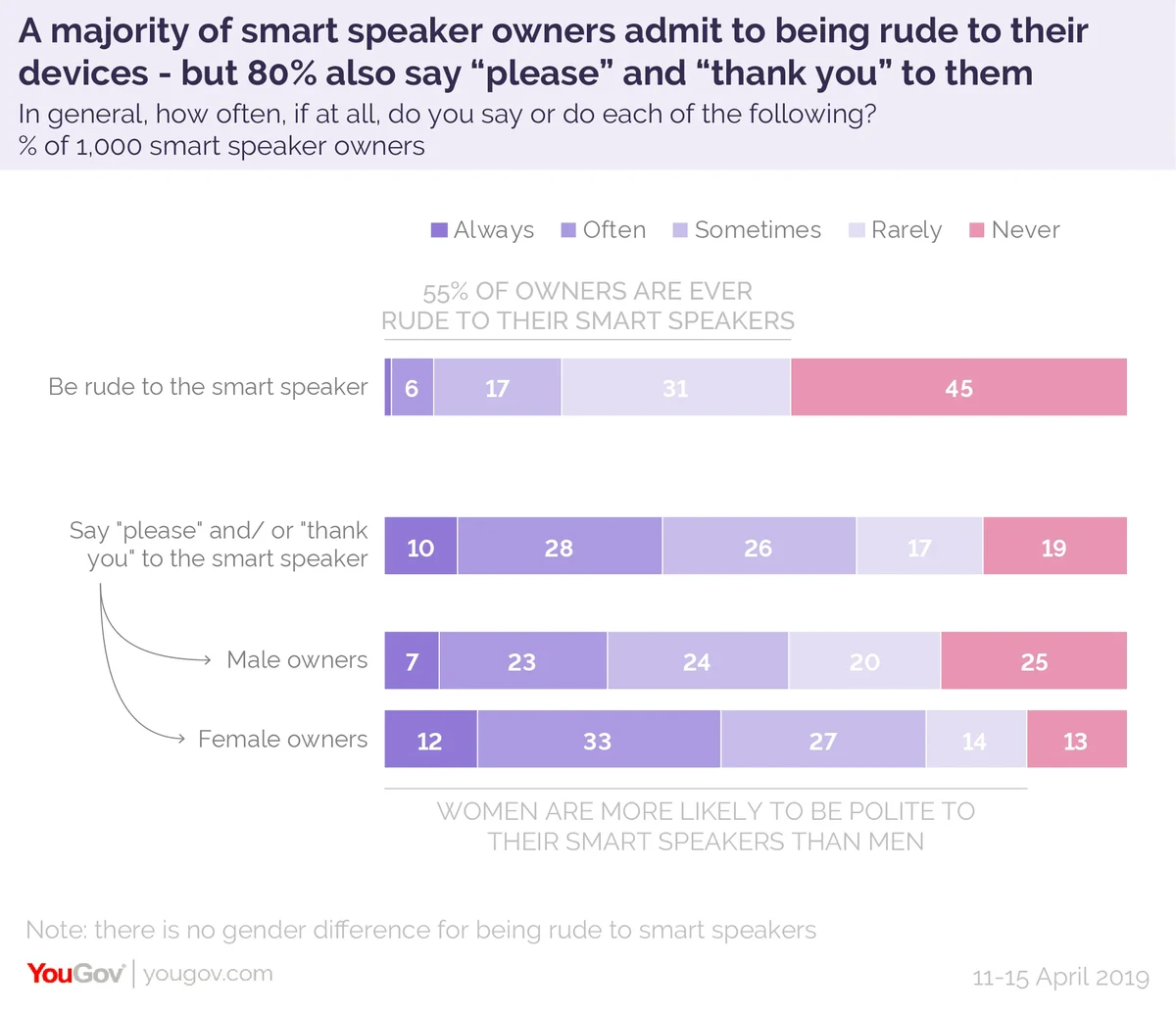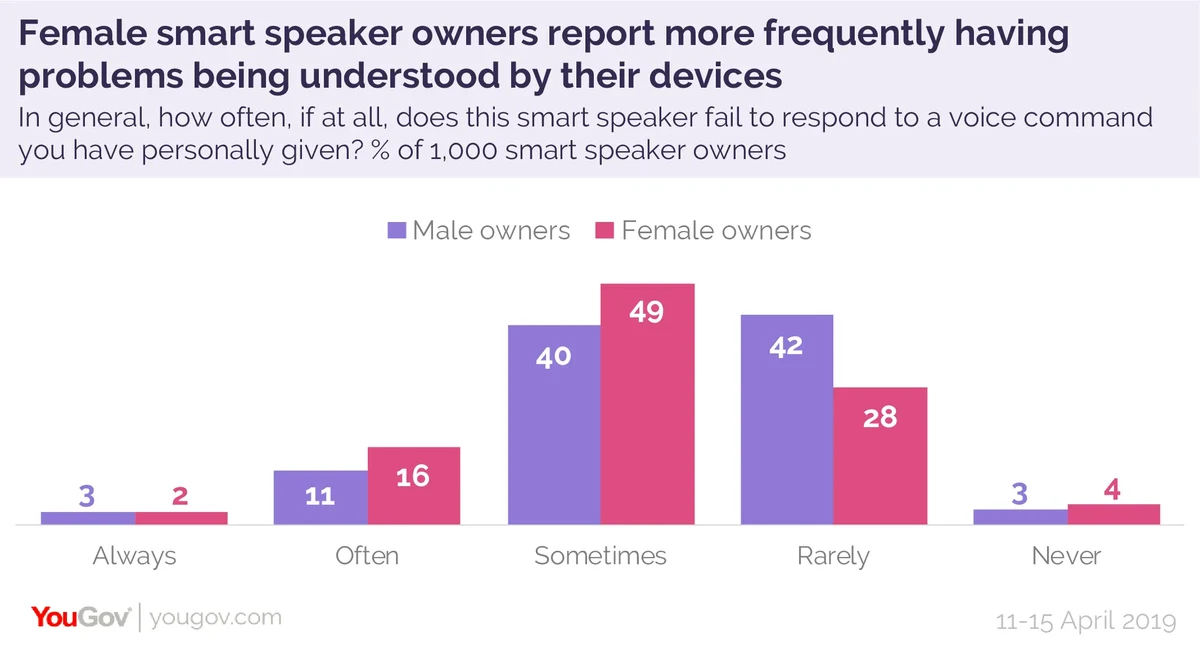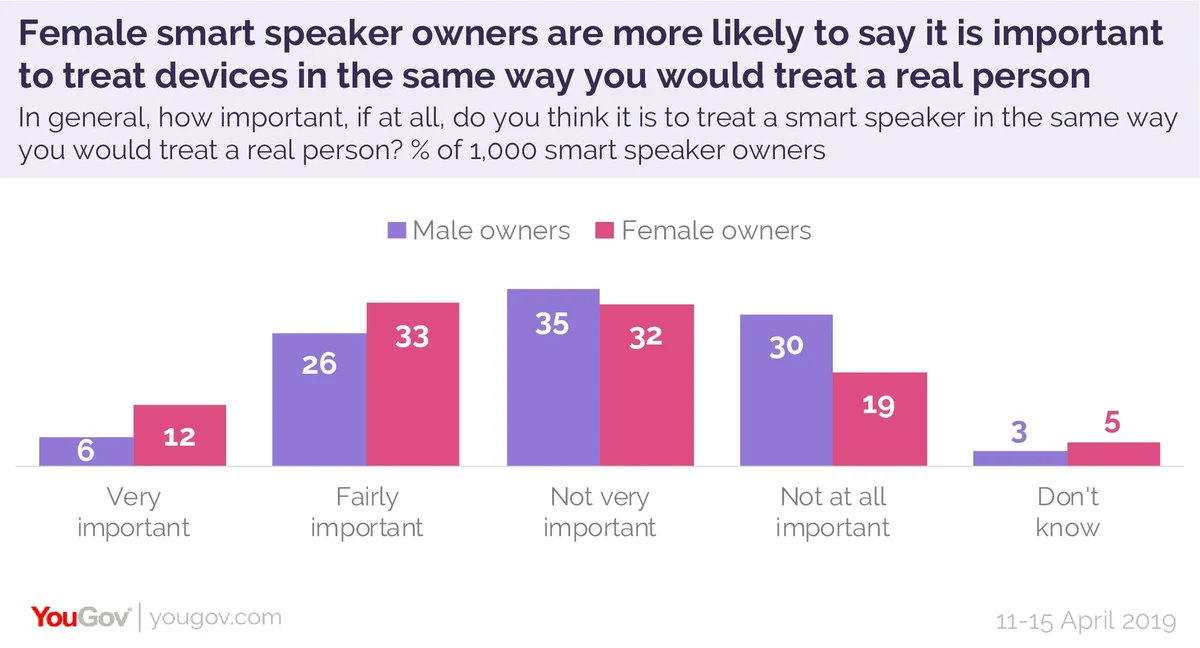11% of Britons own a smart speaker, and that figure is on the rise – but how are we treating these new voice-activated assistants?
Smart speakers that can give us weather forecasts, traffic updates or news bulletins with a simple voice request are becoming more and more popular. But are we treating them as human or a tool? Do we speak kindly to them, using ‘please’ and ‘thank you’, or just bark orders?
A new YouGov RealTime Field and Tab survey finds that 55% of smart speaker owners admit being rude to the devices, including a particularly brusque 7% who say they are “always” or “often” disrespectful to their digital dogsbodies.

The nation’s Alexas and Google Homes aren’t universally treated as electronic whipping boys, however - 80% of owners claim to say ‘please’ and ‘thank you’ to their devices.
Women are noticeably nicer to their smart speakers, with 45% saying they “always” or “often” say ‘please’ and ‘thank you’, compared to only 30% of male owners.
That women are more pleasant to their smart speakers is perhaps all the more surprising for the fact that such devices seem to work less well for them than they do for men. Two thirds of female owners (67%) say that their device fails to respond to a voice command at least “sometimes”, compared to a small majority of male owners who say the same (54%). By contrast, 46% of men say their device “rarely” or “never” fails to work, compared to only 32% of women.

The fact that smart speakers are not real people raises the question of whether or not there is any need for their human masters to bother extending social niceties towards them. When we put that conundrum to owners, only 38% said that it was “very” or “fairly” important to treat a smart speaker in the same way as you would treat a real person.
The majority (58%) said it was either not very important or not at all important to offer their devices the courtesy they would extend their human peers.
Once again, female owners are kinder toward the devices, and more likely to say smart speakers should be afforded human levels of courtesy - 45% feel it’s very/fairly important to do so, compared to just a third (32%) of male owners.

Photo: Getty






